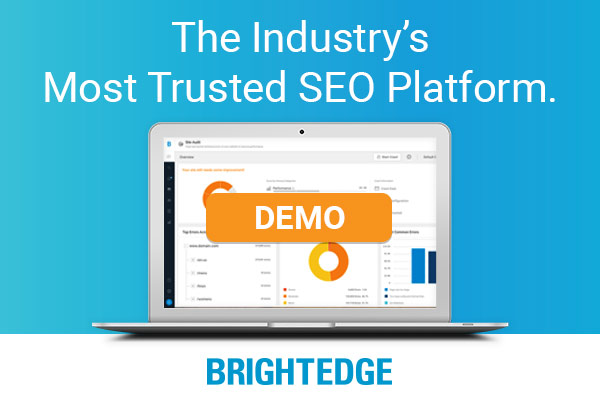How to Understand and Utilize E-A-T?
Master E-A-T for better rank
As the internet continues to mature and the amount of content available online grows, Google has begun to increasingly focus on using the E-A-T acronym to identify the top quality content and the websites offering it.
E-A-T stands for ‘Expertise’ ‘Authoritativeness’ and ‘Trustworthiness’ and it describes the features that the search engine tries to identify in the websites and the content they rank highly for on the SERP.
As Google increasingly looks to these important features, websites will need to think about how they establish themselves as the source to go to for answers. Simply aligning keywords within content no longer provides significant lift in SERP rankings. Instead, brands need to demonstrate that their website as a whole provides the leadership and answers that customers can rely on.
Here are what brands need to keep in mind as they work to boost their own website.
- Expertise
- Authoritativeness
- Trustworthiness
1. Expertise. Google wants to identify the experts in particular areas. If the author of a particular article has credentials and experience that helps to establish them as a trusted expert in the field, then Google wants to display this person’s content to those making relevant searches.
To build a reputation for expertise, brands should focus on creating content that demonstrates they are the ones to listen to in the field. Any relevant credentials of the author should be included, keeping in mind that Google recognizes that what makes an ‘expert’ varies widely depending upon the field.
The content itself should also align well with user intent and be built to anticipate the next potential questions of customers. Let them know that they have found a source of information that can solve their problems.
2. Authoritativeness. Building authority around your website and your brand focuses on credibility. You want to demonstrate to Google and potential readers that your website is credible and ready to help people solve their problems.
Building backlinks from other reputable sites can help establish your place in the industry. You can also help get your main content authors to publish guest posts on other authoritative resources within the industry.
Creating original research and publishing it can also demonstrate through thought leadership and your place at the front of the industry.
3. Trustworthiness. Google also wants to know that the sites it recommends to readers can be trusted. Building this trust centers around showing that your website has been built for users. Using HTTPS to provide additional security will help to establish your brand as a trustworthy one. Focusing on content and headlines that revolve around providing information and helping users - rather than trying to attract clicks through ‘click bait’, and citing sources and linking to information that supports what you say will also contribute.
Building the E-A-T reputation of your site can help to demonstrate to Google and users that your website should be trusted when it comes to providing information and solving pain points. See how optimizing your site for these factors can help build your reputation and increase your website’s visibility.
Master E-A-T for better rank
As the internet continues to mature and the amount of content available online grows, Google has begun to increasingly focus on using the E-A-T acronym to identify the top quality content and the websites offering it.
E-A-T stands for ‘Expertise’ ‘Authoritativeness’ and ‘Trustworthiness’ and it describes the features that the search engine tries to identify in the websites and the content they rank highly for on the SERP.
As Google increasingly looks to these important features, websites will need to think about how they establish themselves as the source to go to for answers. Simply aligning keywords within content no longer provides significant lift in SERP rankings. Instead, brands need to demonstrate that their website as a whole provides the leadership and answers that customers can rely on.
Here are what brands need to keep in mind as they work to boost their own website.
- Expertise
- Authoritativeness
- Trustworthiness
1. Expertise. Google wants to identify the experts in particular areas. If the author of a particular article has credentials and experience that helps to establish them as a trusted expert in the field, then Google wants to display this person’s content to those making relevant searches.
To build a reputation for expertise, brands should focus on creating content that demonstrates they are the ones to listen to in the field. Any relevant credentials of the author should be included, keeping in mind that Google recognizes that what makes an ‘expert’ varies widely depending upon the field.
The content itself should also align well with user intent and be built to anticipate the next potential questions of customers. Let them know that they have found a source of information that can solve their problems.
2. Authoritativeness. Building authority around your website and your brand focuses on credibility. You want to demonstrate to Google and potential readers that your website is credible and ready to help people solve their problems.
Building backlinks from other reputable sites can help establish your place in the industry. You can also help get your main content authors to publish guest posts on other authoritative resources within the industry.
Creating original research and publishing it can also demonstrate through thought leadership and your place at the front of the industry.
3. Trustworthiness. Google also wants to know that the sites it recommends to readers can be trusted. Building this trust centers around showing that your website has been built for users. Using HTTPS to provide additional security will help to establish your brand as a trustworthy one. Focusing on content and headlines that revolve around providing information and helping users - rather than trying to attract clicks through ‘click bait’, and citing sources and linking to information that supports what you say will also contribute.
Building the E-A-T reputation of your site can help to demonstrate to Google and users that your website should be trusted when it comes to providing information and solving pain points. See how optimizing your site for these factors can help build your reputation and increase your website’s visibility.
